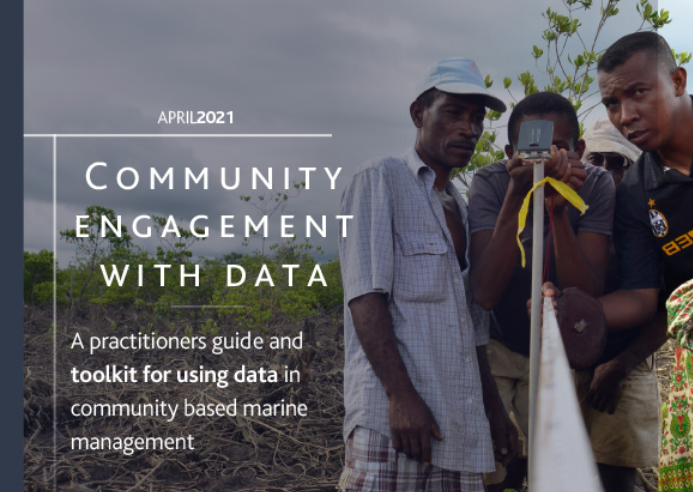Blue Ventures has created a new toolkit for organisations and individuals working with communities to share best practice and provide examples of how to make data sharing effective. With this toolkit, practitioners can help community members to use data to inform their natural resource management and environmental protection decisions.
Data allows community members to understand what is happening to their local marine environment and enhance community-based management strategies, such as locally managed marine areas (LMMAs).
The toolkit draws on a wide range of best practices and experiences from Blue Ventures’ global teams and partners, including case studies from Madagascar, Indonesia, Comoros, Timor-Leste, Belize, and Kenya.
Our approach to engaging communities with data can be replicated and adapted to suit different settings and needs. The methods in the toolkit are based on experiences in coastal regions but can also be applied in marine, terrestrial, and freshwater settings. It can support communities worldwide that depend on natural resources to strengthen their capacity to collect, analyse, and use data. This will enable them to use their resources sustainably and protect their environment, but also ensures they have the information to back up their needs with local government and authorities:
“We conduct village-level participatory data analysis every year, and data recorders also present their findings to the government fisheries staff. This has convinced the government that local communities are capable of this level of data collection and interpretation, that ‘they don’t have to be experts,’ and that the reef closure intervention, for octopus, in particular, is effective” – Lorna Slade, Executive Director, Mwambao, Tanzania.
Access to data and the ability to understand and talk about data empowers communities to make decisions about managing their resources sustainably and protecting their environment through management and advocacy.
Download the community engagement with data toolkit
Read about the power of data




















